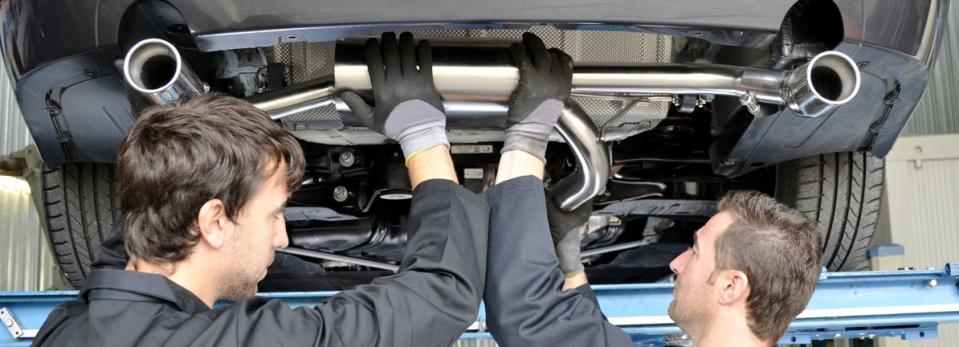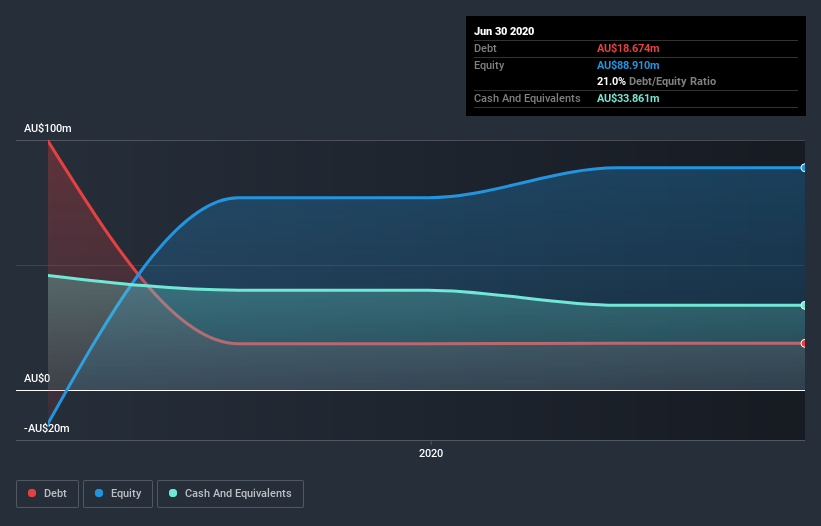Is Carbon Revolution (ASX:CBR) Using Debt In A Risky Way?

Warren Buffett famously said, 'Volatility is far from synonymous with risk.' When we think about how risky a company is, we always like to look at its use of debt, since debt overload can lead to ruin. We note that Carbon Revolution Limited (ASX:CBR) does have debt on its balance sheet. But the real question is whether this debt is making the company risky.
When Is Debt A Problem?
Debt assists a business until the business has trouble paying it off, either with new capital or with free cash flow. Part and parcel of capitalism is the process of 'creative destruction' where failed businesses are mercilessly liquidated by their bankers. However, a more frequent (but still costly) occurrence is where a company must issue shares at bargain-basement prices, permanently diluting shareholders, just to shore up its balance sheet. Of course, debt can be an important tool in businesses, particularly capital heavy businesses. When we examine debt levels, we first consider both cash and debt levels, together.
Check out our latest analysis for Carbon Revolution
What Is Carbon Revolution's Debt?
The image below, which you can click on for greater detail, shows that Carbon Revolution had debt of AU$18.7m at the end of June 2020, a reduction from AU$99.5m over a year. But it also has AU$33.9m in cash to offset that, meaning it has AU$15.2m net cash.
How Strong Is Carbon Revolution's Balance Sheet?
Zooming in on the latest balance sheet data, we can see that Carbon Revolution had liabilities of AU$40.3m due within 12 months and liabilities of AU$12.5m due beyond that. Offsetting these obligations, it had cash of AU$33.9m as well as receivables valued at AU$7.88m due within 12 months. So its liabilities outweigh the sum of its cash and (near-term) receivables by AU$11.0m.
Since publicly traded Carbon Revolution shares are worth a total of AU$414.6m, it seems unlikely that this level of liabilities would be a major threat. However, we do think it is worth keeping an eye on its balance sheet strength, as it may change over time. While it does have liabilities worth noting, Carbon Revolution also has more cash than debt, so we're pretty confident it can manage its debt safely. The balance sheet is clearly the area to focus on when you are analysing debt. But ultimately the future profitability of the business will decide if Carbon Revolution can strengthen its balance sheet over time. So if you're focused on the future you can check out this free report showing analyst profit forecasts.
Over 12 months, Carbon Revolution reported revenue of AU$39m, which is a gain of 157%, although it did not report any earnings before interest and tax. So its pretty obvious shareholders are hoping for more growth!
So How Risky Is Carbon Revolution?
Statistically speaking companies that lose money are riskier than those that make money. And we do note that Carbon Revolution had an earnings before interest and tax (EBIT) loss, over the last year. Indeed, in that time it burnt through AU$46m of cash and made a loss of AU$114m. Given it only has net cash of AU$15.2m, the company may need to raise more capital if it doesn't reach break-even soon. The good news for shareholders is that Carbon Revolution has dazzling revenue growth, so there's a very good chance it can boost its free cash flow in the years to come. While unprofitable companies can be risky, they can also grow hard and fast in those pre-profit years. The balance sheet is clearly the area to focus on when you are analysing debt. But ultimately, every company can contain risks that exist outside of the balance sheet. To that end, you should be aware of the 2 warning signs we've spotted with Carbon Revolution .
If, after all that, you're more interested in a fast growing company with a rock-solid balance sheet, then check out our list of net cash growth stocks without delay.
This article by Simply Wall St is general in nature. It does not constitute a recommendation to buy or sell any stock, and does not take account of your objectives, or your financial situation. We aim to bring you long-term focused analysis driven by fundamental data. Note that our analysis may not factor in the latest price-sensitive company announcements or qualitative material. Simply Wall St has no position in any stocks mentioned.
Have feedback on this article? Concerned about the content? Get in touch with us directly. Alternatively, email editorial-team@simplywallst.com.

